Click here and press the right key for the next slide (or swipe left)
also ...
Press the left key to go backwards (or swipe right)
Press n to toggle whether notes are shown (or add '?notes' to the url before the #)
Press m or double tap to slide thumbnails (menu)
Press ? at any time to show the keyboard shortcuts
Feelings of Agency
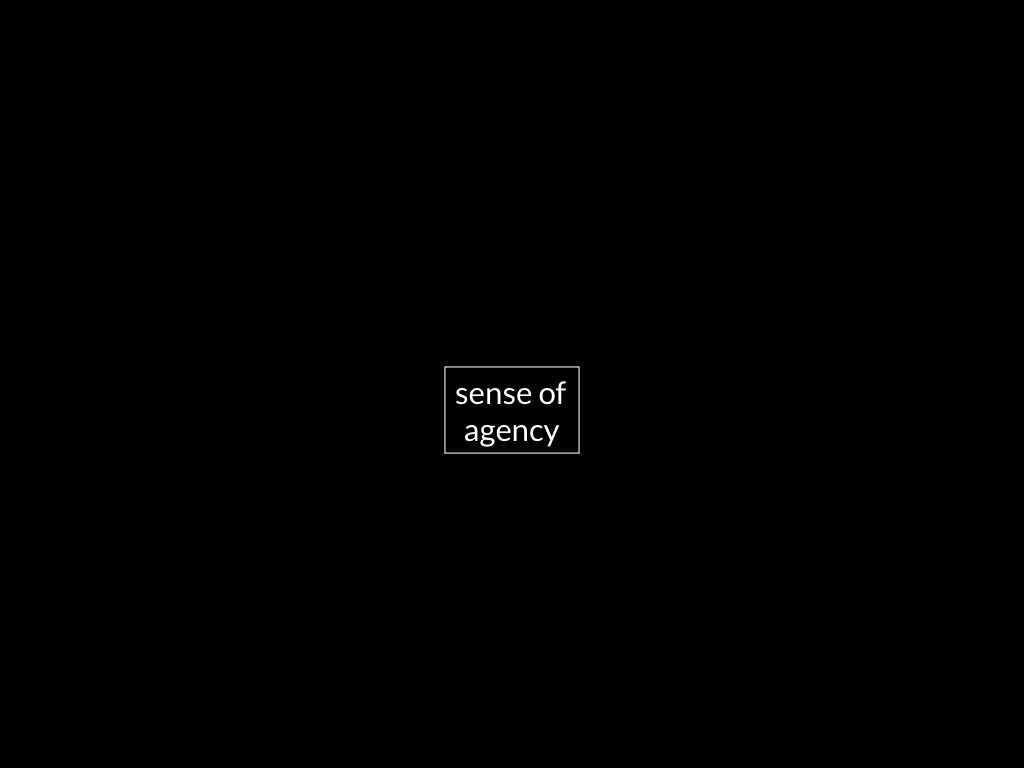
In thinking about this challenge it may be helpful to focus on the sense of agency.
It’s quite well established that there are feelings of agency, and these seem to arise
from a number of cues including ...
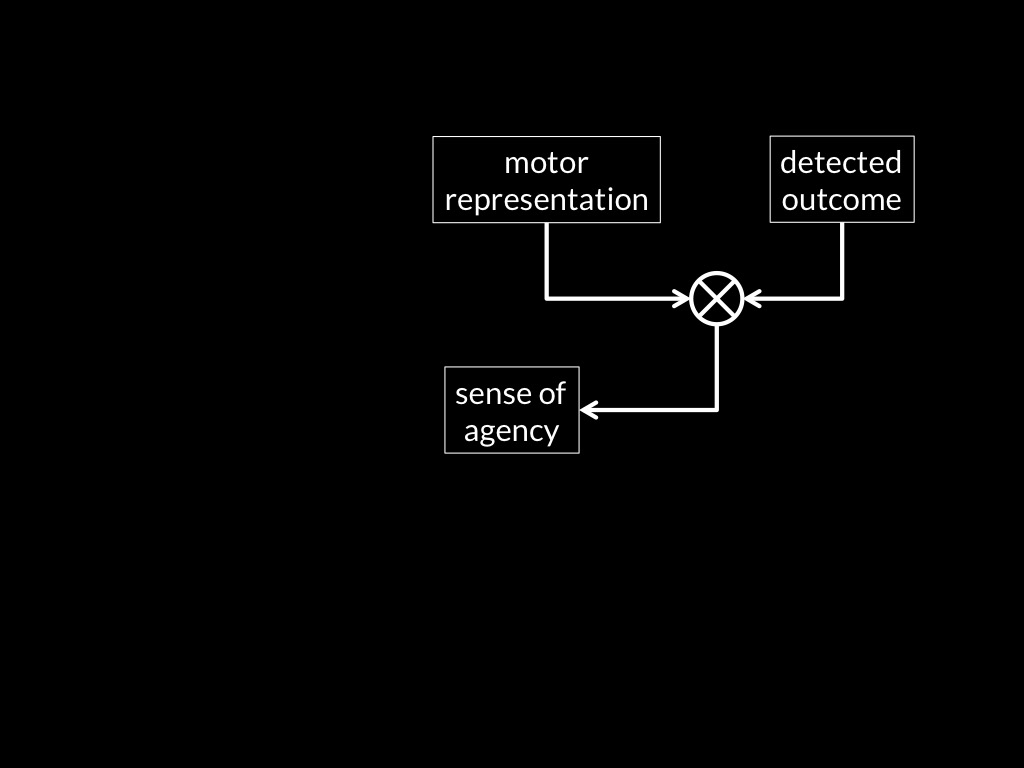
Adapted from Sidarus & Haggard, 2016 figure 5
... comparison between outcomes represented motorically and outcomes detected sensorily and ...
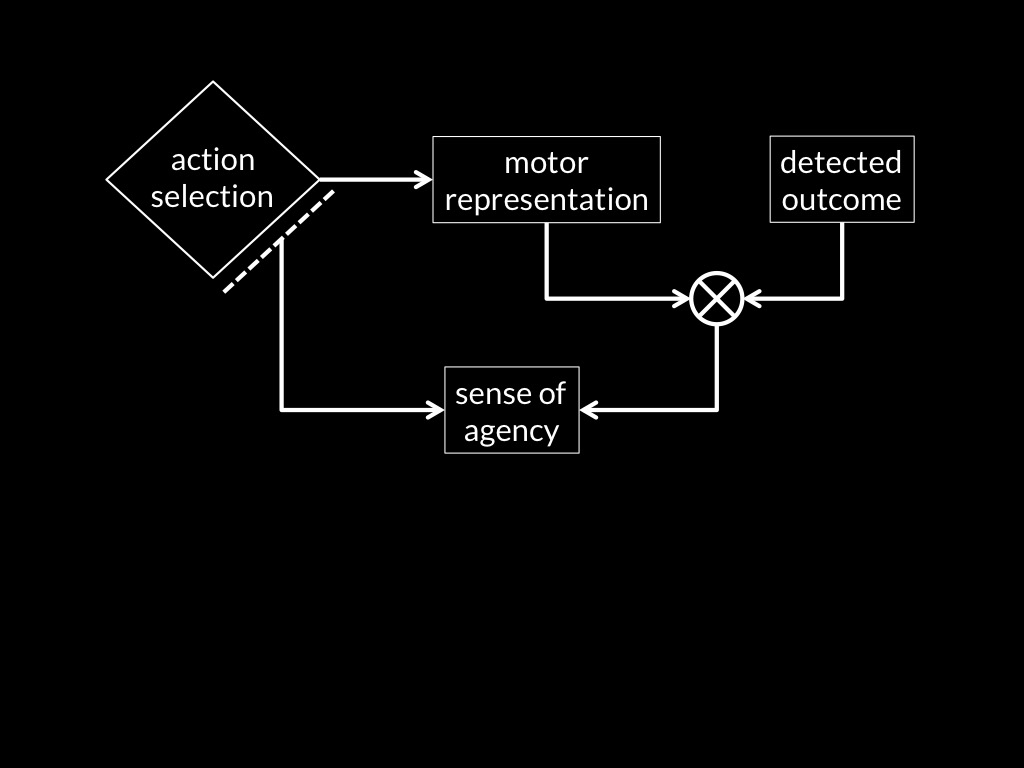
Adapted from Sidarus & Haggard, 2016 figure 5
... the fluency of an action selection process (that is, the ease or difficulty involved in
selecting one among several possible actions to perform motorically; this can be manipulated by,
for example, providing helpful or misleading cues to action
\citep{wenke:2010_subliminal,sidarus:2013_priming,sidarus:2017_how}).
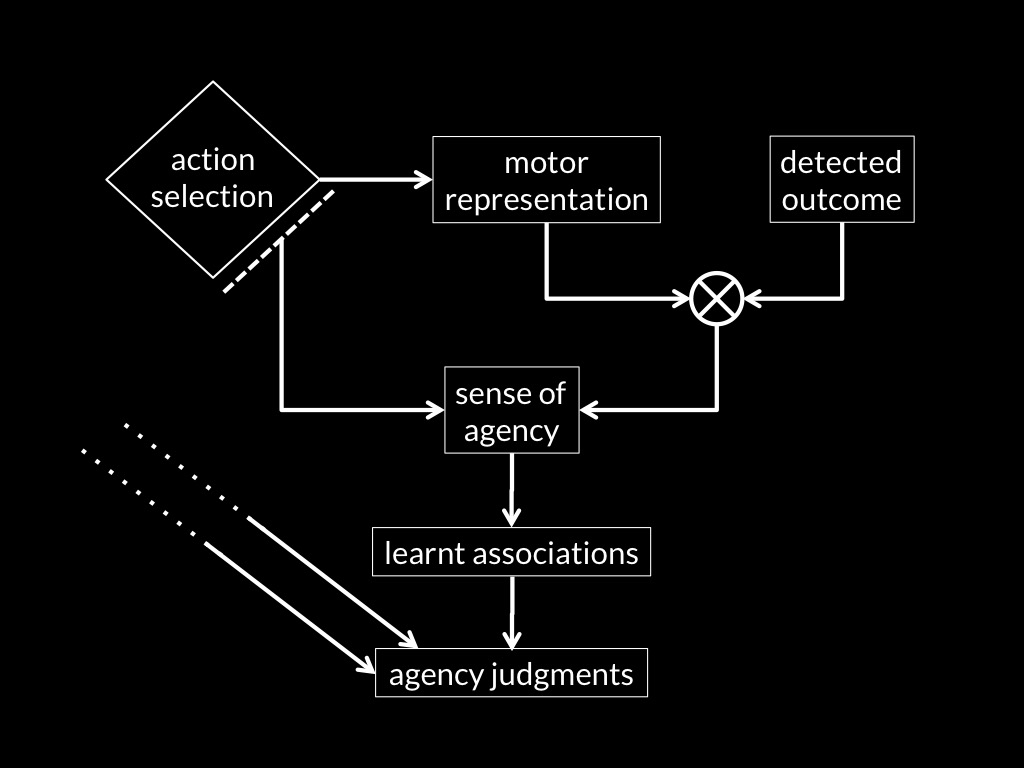
The sense of agency is interesting to us because it serves to link two
largely independent processes concerned with evaluating whether you are the agent of an event.
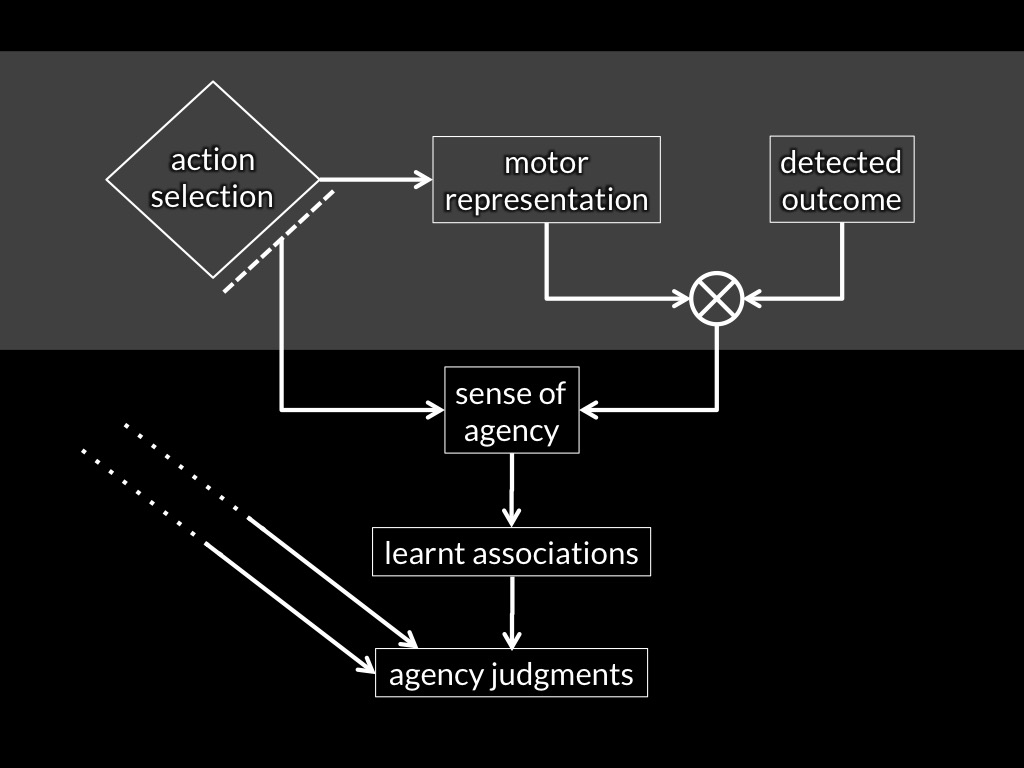
One involves detecting these cues ...
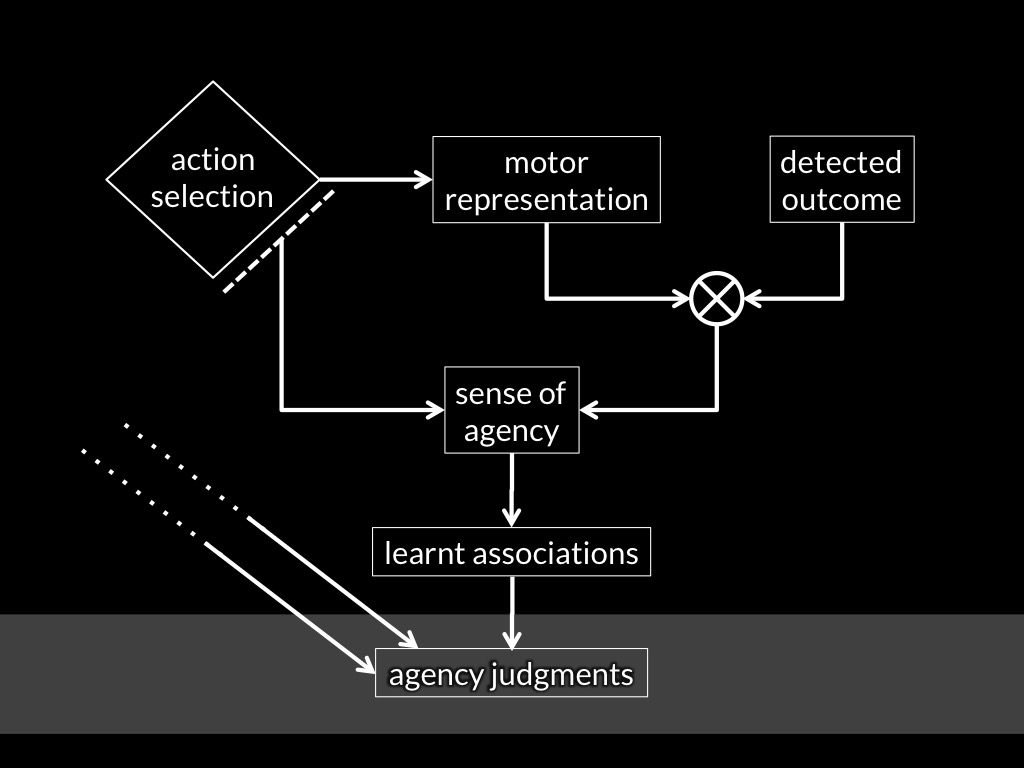
the other involves thinking about it, perhaps in the light
of your background knowledge.
You can think about whether you are the agent of an event, you don’t need to go with your
feelings. When someone asks you whether you felt you were in control, the right answer is to say
‘Well, I don’t know, this is a psychological experiment so there’s a good chance you were
tricking me.’ [But despite all of the possible ways in which reflection on the question might
lead to a variety of answers, people give replicable answers that seem to reflect fluency. Why?
Because they’re answering on the basis of a feeling rather than on the basis of reflection.]

So what is this sense of agency?
First, it phenomenal rather than epistemic.
It is an aspect of the phenomenal character of some experience associated with acting.
So we can call it a feeling.
Second, it is metacognitive in the sense that it’s normal causes include processes which
monitor action selection and production.
So we can call it a \emph{metacognitive feeling}.
\footnote{Compare \citet[p.~310]{dokic:2012_seeds}: ‘the causal antecedents of noetic feelings
can be said to be metacognitive insofar as they involve implicit monitoring mechanisms that
are sensitive to non-intentional properties of first-order cognitive processes.’}